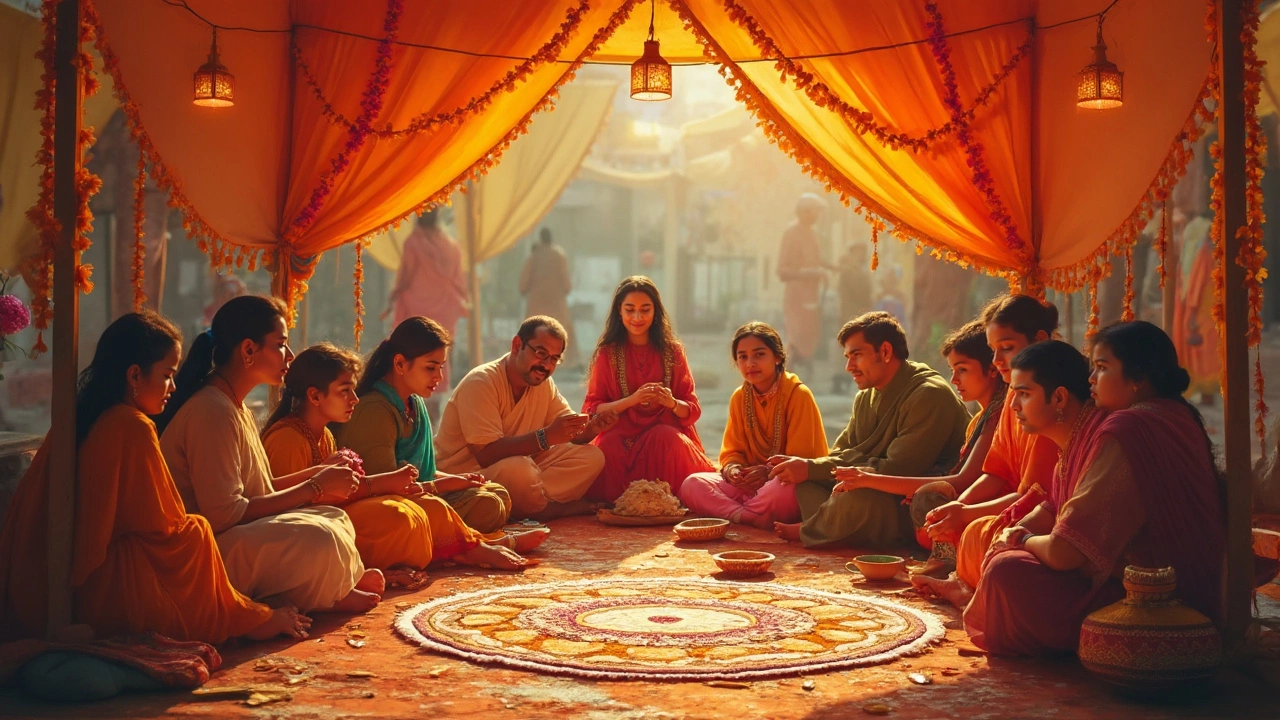Cultural Significance of Indian Quotes, Poems & Statuses
Ever wonder why a simple line of text can feel like a piece of history? In India, every quote, poem, or status carries a story that links our present life to centuries of tradition. It’s not just a meme or a clever line – it’s a shortcut to shared memories, values, and emotions that millions of people recognize instantly.
When you read a line from a Bhakti poem or a Tagore verse, you’re hearing the voice of a movement that shaped the country’s soul. Those words helped unite people during freedom fights, celebrate festivals, and teach moral lessons in classrooms. The cultural weight behind each stanza makes it stick in our minds longer than a random quote from the internet.
Why Indian Poetry Shapes Identity
Indian poetry comes in dozens of languages, each reflecting its region’s flavor. A Punjabi ghazal, a Malayalam lullaby, or a Hindi bhajan all speak the same core ideas – love, nature, and the quest for truth – but they sound different because of local idioms. This variety lets people see themselves in the verses and feel proud of their heritage. When a student recites a classic poem during a school event, they’re not just showing off memory; they’re reinforcing a link between personal identity and cultural legacy.
Modern readers also tap into this power through social media status updates. A short line about “Lakshmi’s blessings” posted on WhatsApp during Diwali instantly connects the writer to a larger celebration. The status becomes a tiny banner that says, “I’m part of this tradition.” That instant recognition is why many prefer using culturally rooted phrases over generic English sayings.
Everyday Attitude Through Quotes and Statuses
Attitude quotes in India often blend humor, resilience, and a dash of philosophy. A line like “Attitude is my superpower” might sound similar worldwide, but when paired with a Hindi twist, it feels homegrown. People share these quotes to boost confidence, to cope with stress, or simply to make friends smile. The cultural relevance adds extra punch – it’s an unspoken agreement that we all get the same reference.
Even short poems, such as haiku-inspired couplets, find a place in daily chats. They fit neatly into a 280‑character tweet or a WhatsApp status, letting users showcase creativity without a long post. Because the forms are familiar, readers instantly know how to interpret the rhythm and meaning, which speeds up the emotional impact.
So, whether you’re scrolling through a list of “coolest quotes” or listening to a regional folk song, remember you’re interacting with a piece of cultural DNA. These snippets remind us of where we come from, what we value, and how we want to be seen. Next time you pick a status or quote, think about the story behind it – you might just add another layer to your own cultural identity.
Birthdays in India hold a special cultural significance, blending traditional customs with modern celebrations. They are occasions of joy, gatherings, and personal reflection. The practices differ widely across regions, often involving rituals, gifts, and community involvement. Understanding these traditions helps appreciate the diverse ways people in India honor this milestone.
More